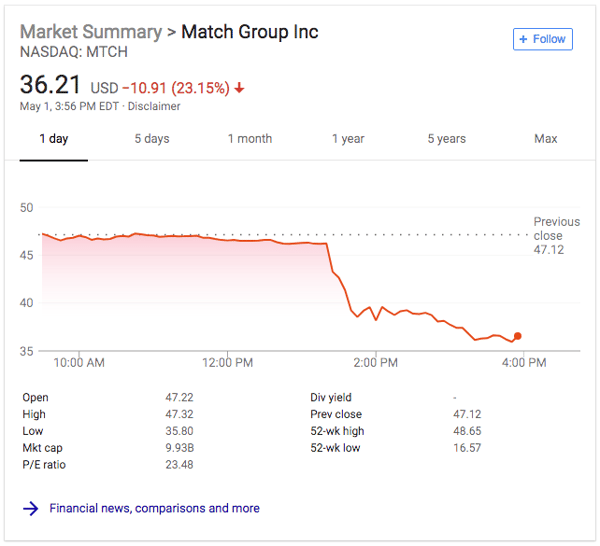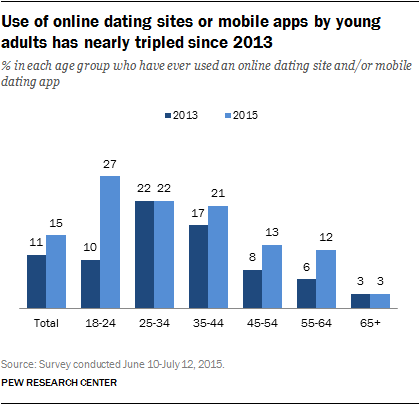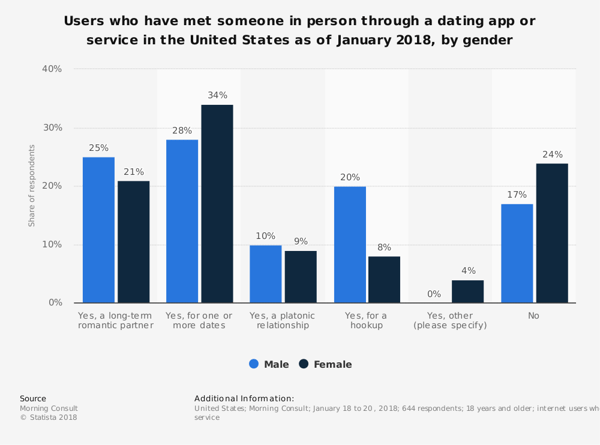When Facebook announced earlier this year that it would introduce a dating feature, the reaction was mixed.
In some places, there was excitement. In a way, it made sense -- Facebook's mission, so it says, is to "bring the world closer together."
It was enough to jolt the competition, anyway. The day it was announced at the company's annual F8 developer conference, the stock price of Match Group -- one of the largest corporations in the online dating space -- plummeted.

$MTCH stock price behavior on F8 2018 day one. Source: Google
But on the other end of the reaction spectrum, there were concerns. Despite Facebook's reassurance that users' friends wouldn't see that they're using the dating app -- and that their dating profiles would be independent of their core network ones -- people had privacy concerns.
After all, the announcement came after a year of privacy-related scrutiny for Facebook. There were offline safety concerns, too -- especially when it was revealed that the app would be designed to allow users to see nearby events that their matches might attend.
And since it was revealed last week that Facebook is, in fact, testing a dating app -- internally, anyway -- how enthusiastic are people about potentially using it?
Facebook is internally testing Facebook Dating.
— Jane Manchun Wong (@wongmjane) August 3, 2018
I can't go past the signup screen because they are not activating all non-employee Dating profiles because, well, it's "pre-launch" ;) pic.twitter.com/VQFHUJIkuX
Who Wants to Use a Facebook Dating App?
The Data
We asked 672 internet users across the U.S., UK, and Canada: Would you ever use a Facebook dating app?
On average, 63% of respondents said no.
.png?t=1533832383785&width=600&name=Would%20you%20ever%20use%20a%20Facebook%20dating%20app_%20(1).png)
Data collected with Lucid
The highest degree of reluctance came from U.S. respondents, 68% of whom said they would not use a Facebook dating app.
Those from Canada, meanwhile, showed the most enthusiasm, with 30% of respondents saying they would give it a try.
.png?t=1533832383785&width=600&name=Responses%20by%20Region%20(6).png)
Data collected with Lucid
The Context
Since the semi-official prospect of a Facebook dating app was first announced, Match Group -- which owns competing dating apps like Tinder -- has largely rebounded, especially since revealing Q2 2018 revenue growth and the introduction of premium features.
But there's an item to consider regarding Tinder and similar apps. Many of them allow users to create accounts and log in with Facebook -- permitting the app access to some of their personal data, like photos and friend lists.
.png?t=1533832383785&width=300&name=Image%20from%20iOS%20(1).png)
Now, let's consider the breadth of user data that Facebook owns -- which it has vehemently and repeatedly stated it does not sell, but uses to help personalize ads.
When I downloaded my own Facebook data, for instance -- seeing how much information was in there got weird, fast.
When you couple that with the idea of Facebook building an app designed to build romantic connections, it could understandably give users pause. But at the same time -- it could be quite effective.
Despite the concerns -- which are valid -- Facebook's treasure trove of information on its users, like their respective interests and relationship status histories, could help it build a "dating preferences" algorithm that far outshines any used by other apps.
Then, pair that with Facebook's facial recognition technology. Not only does the network understand what brands or activities users like -- it also could also potentially use machine learning, with the help of the aforementioned relationship history, to understand what physical attributes they're most drawn to.
Looking Ahead
My prediction: Facebook will forge ahead with its dating app anyway.
Looking at the history online dating's popularity, it's clear that its growth is incremental. In 2015 -- before many of the apps and options available today existed -- Pew Research Center found that the use of online dating tools by young adults tripled over a period of two years.

Source: Pew Research Center
And as of January 2018 -- nearly two years after that data was released -- additional research has found that an average of 23% of U.S. users have met a significant other through dating apps or services.

Source: Statista
Point being: New technology historically takes time to catch on. This is not the first time a new feature from Facebook has been met with resistance -- remember when it first rolled out the News Feed? -- but users adapted.
In fact, at the company's annual virtual reality conference next month -- Oculus Connect -- I won't be surprised if we see the official launch of Facebook's dating app. Nor will I be surprised if it's integrated with Oculus Venues: the VR feature that allows users to watch live events as a group and engage with each other.
Stay tuned.
Featured image credit: Facebook
from Marketing https://blog.hubspot.com/marketing/most-people-wouldnt-use-facebook-dating-app
No comments:
Post a Comment